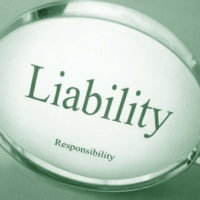Is a Store Liable if I Sit on a Broken Chair?

When you enter a store or other public business, the owner has a legal responsibility to ensure the premises are in a reasonably safe condition. But this does not mean a business owner is an absolute insurer of your safety. To the contrary, Tennessee law generally holds an owner liable when it has “superior” knowledge of a particular hazard relative to that of the customer.
Court Dismisses Premises Liability Claim Against Goodwill Store
For example, the Tennessee Court of Appeals recently upheld a trial court’s decision to dismiss a personal injury lawsuit filed against the operator of a Goodwill store in Davidson County. The basic facts of the case are fairly straightforward. The plaintiff was looking at a plastic chair for sale at the store. She sat in the chair, which promptly collapsed, causing the plaintiff to hit her head on another item of furniture.
The plaintiff sued the store for negligence, alleging the store’s employees were negligent in failing to either properly inspect the chair or warn customers of the potential hazard. The defendant moved for summary judgment–dismissal of the plaintiff’s lawsuit as a matter of law–which the judge granted. The Court of Appeals subsequently affirmed that decision.
The key problem, the Court of Appeals explained, was the plaintiff failed to uncover any evidence that the store had knowledge of the “alleged defect in the chair” prior to her own accident. In preliminary depositions, a store manager testified employees “visually inspected and examined” all donated items before they were placed on display for customers. And while the manager said no employee actually sat on the chair to test it, the plaintiff herself admitted during her own deposition that she conducted no inspection of her own. Indeed, when asked if there was any indication the chair was unsafe before she sat down, the plaintiff answered “no.”
The Court of Appeals noted it was not enough for the plaintiff to argue the chair must have been defective because it collapsed. The law requires a personal injury plaintiff to identify some “specific defect” that would have reasonably put the store on-notice the chair was hazardous. Absent such an alleged specific defect, the plaintiff could not logically argue the store’s inspection procedures were insufficient.
Clinton Personal Injury Lawyers Fighting for You
In any kind of personal injury case, the burden of proof is always on the victim to show the defendant did something wrong. With respect to premises liability, the victim must build a logical bridge between their injury and some negligent act on the part of the defendant. You cannot simply show up in court with your medical bills and expect to win.
This is why having an experienced Clinton personal injury lawyer is crucial. At Fox, Farley, Willis & Burnette, our attorneys have the experience to build the strongest possible case for our clients. While no lawyer can ever guarantee a favorable outcome, we will make every effort to make sure you receive your day in court. Call us at 866-862-4855 to schedule an initial consultation with a member of our team today.
Source:
tncourts.gov/sites/default/files/jobe.ovalla.opn_.pdf
